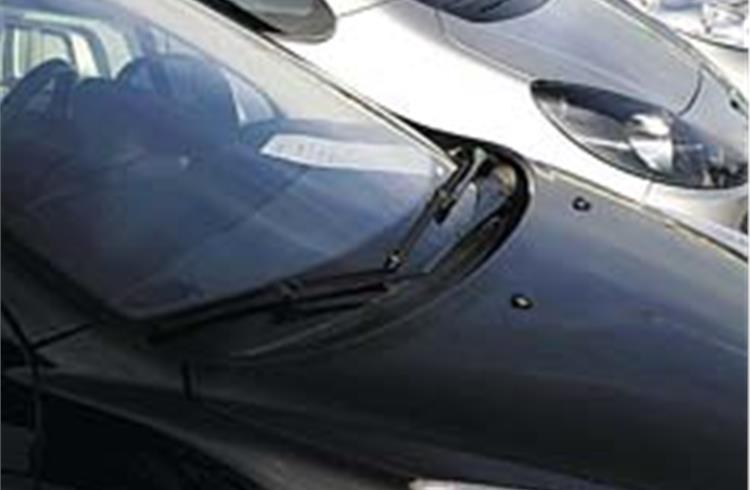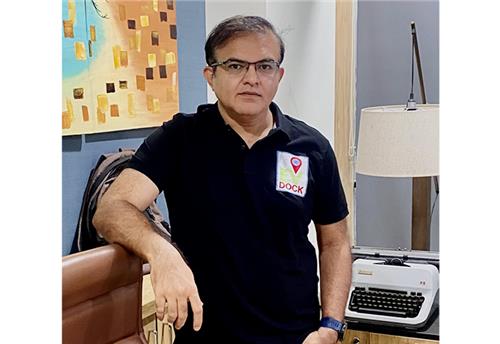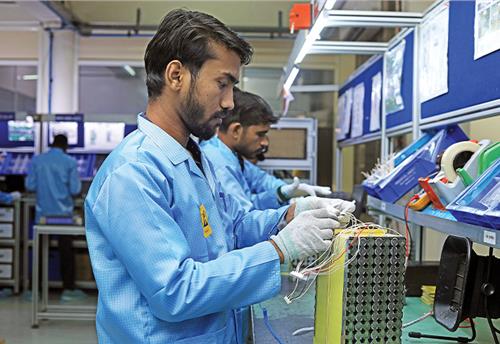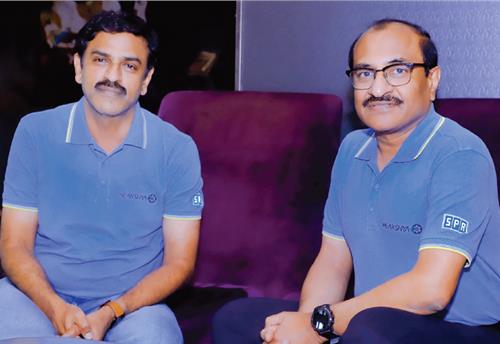Arval pushes operational lease
French car leasing company Arval believes there is massive growth potential in the full operational car lease segment of the Indian market.
The company was registered in September 2007 in India and begun operations in January last year. According to Liam Donnelly, managing director, Arval India, “Today we have just under 1,000 vehicles on the road with around 110 clients. In terms of where we thought our business plan would take us in the first year of our operation, we are bang on target.”
Arval says that as an operating lease company, it can provide its clients with any type of car model from any of the manufacturers present in India. “We do not tie ourselves to any specific manufacturers and are able to buy from all of them,” says Donnelly. About 27 percent of the company’s fleet in India consists of Honda vehicles, and around 24 percent comprise models from Maruti Suzuki.
Of the Honda cars, the City makes up the bulk of its fleet with some other models like the Accord and CR-V being available as well. As for Maruti, Arval offers the Swift hatchback and the Swift Dzire saloon. The other major manufacturer that the company buys from is Tata Motors with its Indigo saloon being the preferred choice. Discussing the size and growth of the car leasing business in India, Donnelly says: “According to the research we conducted before we entered India, the market here has 300,000 to 350,000 vehicles within the corporate sector. Keep in mind that we only operate within the corporate sector worldwide and in India as well. We do not do any consumer business and have a purely ‘business to business’ model.”
Currently the most common way of buying vehicles within the corporate sector is either through car loans or through a finance lease and the operating lease market penetration is still very low. “In our estimation there are probably no more than 25,000 vehicles on operational lease in India. But if I roll the clock back to 15 years ago in Europe, it was exactly the same. Today in Europe, operational lease penetrates the corporate market upto around 60 percent. So we have seen a huge shift away from finance lease, car loans and outright purchase, towards operational lease and this should happen in India as well,” explains Donnelly.
He adds “India is a market that is just in its infancy. We at Arval generally enter a market a few years after our parent company BNP Paribas Bank has been in that market. There is no doubt that India presents a huge growth opportunity and while a lot of the market today runs on a CTC (Cost To Company) scheme, we are gradually beginning to see some companies move away from CTC and into a full operational lease product. We just want to make sure we are here and established when that happens. So this is not a short term investment by the company, we are here for the long term.”
Corporate benefits of leasing
Among the major benefits of leasing for corporates is that the vehicle is off their balance sheet and they also don’t spend their time and resources managing cars. “They want to outsource this activity and operational lease is ideal since we can manage the fleets for corporates leaving them to focus on their core activity. Also from a management of cash perspective, I think operational lease is the better use of cash for the corporate sector.” says Donnelly.
Arval says that it has two fundamentally different approaches to the car leasing business compared with its peer group. Firstly, they speak to the clients before actually leasing the cars, to understand why the company gives cars to its employees in the first place. These could range from reasons like motivation, retention or recruitment or could be a mix of all these three. Then it evolves a car policy, which is never based on the capital cost of the vehicle, but based on Total Cost of Ownership or TCO.
“I know I can give you one car that costs Rs 10 lakh and another that costs Rs 8 lakh and your immediate reaction is that the less expensive car is also cheaper to run. But actually when you factor in maintenance, insurance, residual value, the more expensive car can be as competitive on TCO as the less expensive car,” Donnelly elaborates.
Also, Arval says that it does things differently is the way in which it manages the vehicle through its lifetime. This means that the client can amend the contract any time they like and every six months the two parties sit down and review the performance of the fleet with the sole purpose of giving clients information to make decisions.
Arval is very optimistic about the prospects of the Indian market. Donnelly says: “As far as India is concerned, its economy is still growing and as we understand it, this market will continue to grow at five to six percent over the next few years. For us, in comparison to Europe, this is fantastic.” Arval also wants to see a rise in the service standards at dealerships in India which it believes will happen as there is consolidation in the dealer industry.
Discussing the global economic slowdown and its impact on the car leasing business, Donnelly says, “When a market is in decline like in Europe, the instinct at most companies is to look at ways to tidy up their balance sheet and try to make better use of their cash resources and try to reduce costs. In my mind, the operational lease is particularly relevant in a tight economy. There may be a slowdown in terms of new vehicles being taken on operational lease, but the whole idea is very relevant in today’s environment.”
Good client mix
In India, Arval has a mix of multinational companies and business start-ups as clients. They range from Indian Oil Corporation (IOCL) and Rail Vikas in the government sector, Mindtree and EMC Square in the IT sector, and Marpos within the car parts manufacturing sector.
“We never say we will work with only one particular sector. The criteria are that the business should be sound; they should have a strong balance sheet and good cash flow. In this case we are happy to provide them with vehicles,” clarifies Donnelly.
The company also offers 24-hour assistance to its clients across the country and is keen to see the development of a fuel management system within the country. “Today in India we are in an industry where the retail outlets are controlled by two or three big players and they are controlled by government in terms of pricing. In Europe that does not exist, with market forces determining pricing. Arval is a major player in fuel management in Europe and I would like to see us bring that product to the Indian market, because fuel is a major part of the total operating cost of the vehicle,” states Donnelly.
“In the UK we have our own fuel cards and in that market, 25 percent of all fuel pumped at retail outlets goes through our fuel card. Also, these cards can be used at any fuel station in Europe and since this is a cashless transaction, I think corporates prefer it. But we need the market in India to change before we can bring in such a product.” adds Donnelly.
Arval has also been studying the Indian vehicle leasing market to better understand the needs of customers and the evolving trends within this sector. “We have something which we call CVO which is the Corporate Vehicle Observatory and every year the CVO conducts independent market research within the corporate arena with regard to what is happening in the corporate vehicle sector. In 2008 we conducted our first research in the Indian market and at the end of May 2009 we will launch the research for this year. This research gives our corporate clients and prospects a complete picture of what’s happening in the market and nobody else is doing something like this at the moment. The research also gives a benchmark against many other countries in Europe, as regards what they doing in the same sector,” states Donnelly.
The company is also working to educate corporates in India about the environment and the cars they use. “In Europe right now there is a huge emphasis on CO2 emissions and our quote engine that we just developed here in India also takes this into account. So if you want a car on lease for three years and 20,000 kilometres, our quote will include the total CO2 emissions that car will emit over the life of the lease. I think India will very quickly catch up on the whole emissions issue as the penetration of cars increases,” concludes Donnelly.
RELATED ARTICLES
BRANDED CONTENT: Eliminating the worries of battery charging with smart solutions
The charging infrastructure is the backbone of electric mobility but is also one of the key perceived barriers to EV ado...
The battery-powered disruptor
Greenfuel Energy Solutions is planning to shake up the EV battery market with the launch of a portfolio of specially eng...
SPR Engenious drives diversification at Shriram Pistons & Rings
The engine component maker is now expanding its business with the manufacturing of motors and controllers through its wh...





 By Autocar Pro News Desk
By Autocar Pro News Desk
 18 May 2009
18 May 2009
 5981 Views
5981 Views









